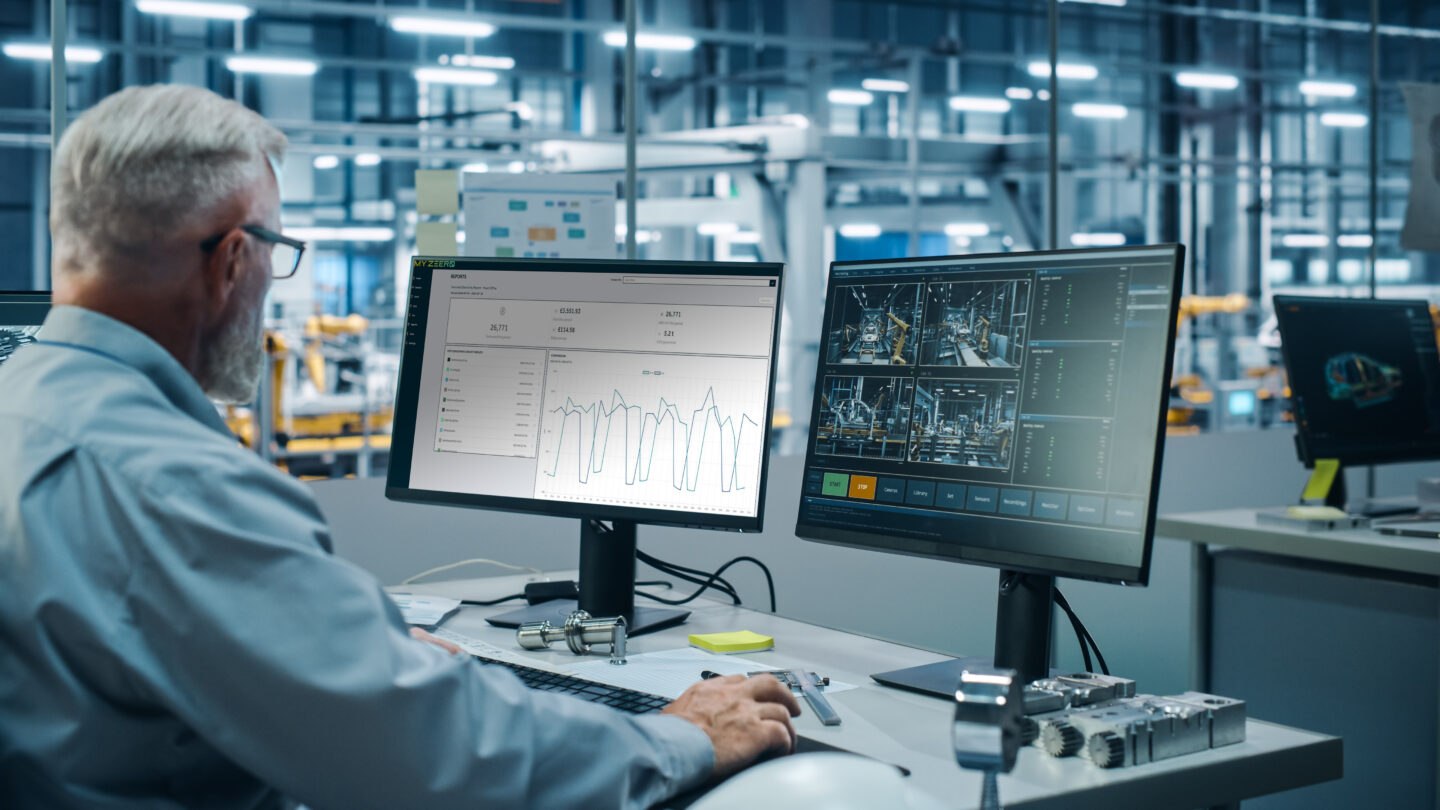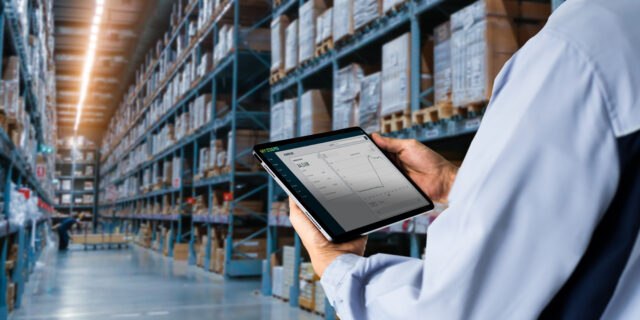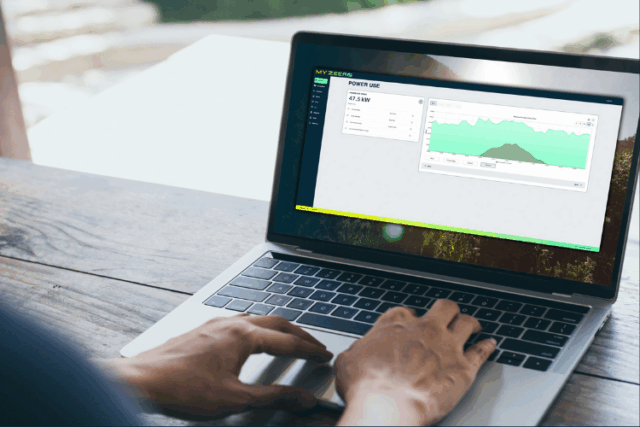Finding the right sustainability data management software for your business
Tracking sustainability progress requires more than just spreadsheets. As expectations from investors, regulators and customers continue to rise, businesses need data they can trust, data that’s accurate, timely and auditable. That’s where the right sustainability data management software makes a real difference.

Finding the right sustainability data management software for your business
Tracking sustainability progress requires more than just spreadsheets. As expectations from investors, regulators and customers continue to rise, businesses need data they can trust, data that’s accurate, timely and auditable. That’s where the right sustainability data management software makes a real difference.
By centralising your data, automating collection, and aligning reporting with frameworks like Streamlined Energy and Carbon Reporting (SECR) or the GRI Standards software brings structure to your sustainability strategy. It helps ensure you’re not only tracking progress, but also equipped to report, analyse and act with confidence.
In this guide, we’ll explore why sustainability data management matters, what to expect from modern systems, when you might need software support and how to choose the right solution for your business.
Why sustainability data management matters
Without structured, reliable data, even the most ambitious sustainability strategies can falter. Effective sustainability data management gives your organisation a strong foundation for ESG reporting, decision-making and long-term planning. When data is decentralised or manually tracked, it’s easy for inconsistencies and errors to creep in, which can damage credibility and slow down progress.
Key benefits of good data management:
- Ensures data accuracy and auditability
- Simplifies internal and external reporting
- Supports carbon reduction and ESG strategies
- Saves time by reducing manual processes
As an example of this in practice, Equity Energies recently partnered with Birmingham Museums Trust to implement energy meters and bill-validation services—resulting in over £182,000 of annual cost savings while improving energy insight and sustainability monitoring across its museum sites.
Sustainability data is more than just numbers, it’s the evidence behind your environmental commitments. Managing that data effectively protects both your reputation and your ability to meet future goals.
What to expect from a sustainability data management system
A modern sustainability data management system is far more than a digital filing cabinet. It acts as a central hub that collects, standardises and analyses sustainability data from across your operations, from energy meters and suppliers to business units and buildings.
Common features include:
- Automated data collection from meters, systems and third-party sources
- Standardised data formats to reduce human error and ensure consistency
- Dashboards and visualisations to track performance over time and across teams
- Exportable reports aligned to frameworks like SECR, GRI, CDP and TCFD
- Access controls and audit trails to ensure data integrity and security
With the right sustainability data management software in place, you can spend less time chasing numbers, and more time acting on what they tell you.
Signs your business needs software support
Not every business needs to jump into enterprise-scale solutions, but there are clear signs that point to the need for a dedicated system. If your team is spending more time compiling spreadsheets than acting on insights, it might be time to invest.
Consider software if:
- You’re spending too much time consolidating spreadsheets
- Different departments report data inconsistently
- You’re unsure if your data is accurate or compliant
- Your team struggles to meet reporting deadlines
- You’re preparing for ESG audits or investor scrutiny
If these challenges sound familiar, moving to a structured platform can ease the pressure and provide a clearer path forward.
How to choose the right solution
There’s no one-size-fits-all answer when it comes to sustainability data management software. The right platform will depend on your business’s size, sector, maturity and strategic goals.
Start by defining what you need the system to do, then evaluate vendors based on those priorities.
Key questions to ask during selection:
- Does it support the reporting frameworks we’re committed to (e.g. SECR, CDP, GRI)?
- Can it integrate with our existing systems and platforms?
- Is it user-friendly for both technical and non-technical teams?
- Can it scale with our sustainability ambitions?
- What level of onboarding, training and ongoing support is included?
It’s also worth considering how the software aligns with your broader environmental strategy. For example, systems that support energy tracking, waste reporting and carbon accounting in one place may offer better long-term value than niche solutions.
Future-proofing your sustainability reporting
As the demand for reliable, transparent sustainability data grows, businesses need to be ready. Choosing the right sustainable data management approach today helps ensure your reporting is accurate, consistent and audit-ready tomorrow.
It also positions your organisation as a leader, one that takes sustainability seriously and backs up its goals with credible data. Whether you’re preparing for ESG disclosure, aligning with net zero targets or enhancing operational transparency, investing in sustainability data management is a future-proof decision.
Simplify your sustainability reporting with Equity Energies
Choosing the right sustainability data management software can feel overwhelming, especially when navigating evolving standards, internal requirements and tight reporting timelines. At Equity Energies, we help businesses simplify the process.
We support you in selecting and implementing sustainability data management solutions that align with your goals, integrate with your systems and deliver real value. Whether you need help with data strategy, vendor evaluation or end-to-end implementation, we act as your expert partner throughout the journey.
Our team has experience across a range of platforms and sectors, and we tailor our support to meet your reporting obligations and future ambitions, from regulatory compliance to net zero readiness.
If you’re exploring options or need guidance on building a scalable, effective approach to sustainability data management, get in touch, we’re here to help.
Conclusion
A dedicated sustainability data management system helps businesses cut through complexity and focus on what matters, delivering real progress. It ensures your reporting is robust, your data is trusted and your teams are equipped to drive change.
Whether you’re just getting started or scaling your efforts, the right software helps you save time, reduce risk and demonstrate meaningful action on your sustainability journey.
-

Net Zero Pathway
A guide to business energy management
Managing energy is no longer just a matter of cutting costs — it’s a strategic necessity. As businesses face rising energy prices, stricter regulations, and…
Find out more -

Market Insights
A guide to forecasting energy costs and consumption
Energy cost forecasting is no longer a luxury — it’s a necessity. For businesses in today’s volatile energy markets, predicting future costs and consumption can…
Find out more -

Market Insights
A virtuous circle: is the key to NHS sustainability progress to be found in a circular approach?
As the NHS continues to grapple with rising demand, constrained budgets, and the urgent need to reduce emissions, the pressure to find sustainable solutions is…
Find out more